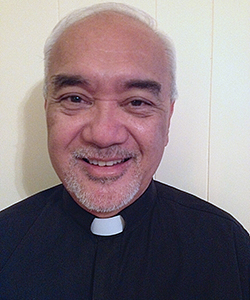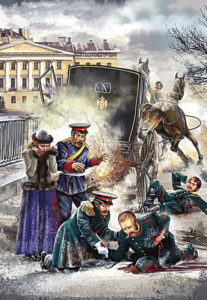
I have always liked history. In fact, the genre of books, both print and online, are histories, biographies and historical novels. Perhaps it’s about who I am, as an individual, in that I love to be with and know about people; where they’re from and how they came to know me.
In preparation for this column, for this issue, I did some research and reading about what history can teach us. First off, I think that it is somewhat natural for us “social beings” to know one another. Specifically, I believe it is good to know your neighbor, your friend, even your foe. History tells the story of how people live with each other.

Photo courtesy www.pinterest.com/manueltreto/zares-russos/?lp=true
History, the story of our past, challenges us to understand the present. Have you ever wondered why “so and so” thinks or acts a certain way. Recently, I read a somewhat definitive history of the Russian Revolution of 1917. Did you know that the revolution actually began with the March 1, 1881 assassination of Tsar Alexander II, the grandfather of the last Tsar, Nicholas II, who himself was murdered, along with his entire family on July 17, 1918. History is like peeling an orange; the deeper you go, the “juicier” it gets!
History confirms and validates what we have learned from the past. Sometimes, in fact I think often, the past gives a clue as to the future! I think the phrase “Learning from our mistakes” comes from this perspective.
History tells the story of humankind’s success. The success of advancement of individuals, groups and civilizations can lead to such advancement by others, if we know, perhaps in hindsight, what went right and what went wrong.
History is about culture and politics. A Philosophy Professor I had in college used to regale us with stories, from historical facts, about the “story behind the story.” He became somewhat hermeneutical with us eager philosophy students, saying that “the real story is what happened around the story in question.” I asked him why he would say this and he said “because everything humankind does is about culture, that is how we live, and politics, that is how we live with one another.” Thus, none of us live alone or in a vacuum and, beyond the self, there are others who influence, teach, react, lead and follow!
History alerts us to change and change is ever present. Like me, have you ever thought of how the present, our daily living “in the now,” is really about “living history?” You know, by the time you get around to thinking about this, it’s already history, and the longer you go away from the now, the more “historical” it gets. For instance, take a look at a yearbook or photo album, of any date, and history and change comes into view.
History feeds our natural curiosity to seek knowledge and understanding. You know the success of Wikipedia, and the historical scholars amongst us say that its success is dubious, is because it is knowledge that is easily accessible and gives us other perspectives as to why things are and how they got that way.
History binds us together, as communities, societies, nations, civilizations. I am a rather social person, one who is curious, in a good and enlightening way, about others. I like to know that others live, think and believe in somewhat the same way as me. But history can also “unbind” us as well!
History frees one from one’s own doubt and fear. A tenant of ancient Greek Philosophy, i.e. “love of knowledge,” is that the person is never truly free unless one conquers fear and doubt. Knowledge, of almost anything, gives us permission to move on and to gain wisdom and understanding.
History teaches struggle and moves us onto what is truly victorious, worthy and knowing of what to pass on. Join me in reading, thinking, knowing and living history!
Have an idea or a comment or even a question, contact me at this email address: atingkabuhayan@gmail.com. Until next time, take care!
John A. Hau’oli Tomoso† is a Social Worker and Episcopal Priest. He is a Priest Associate at Good Shepherd Episcopal Church in Wailuku and an on-call Chaplain at Maui Memorial Medical Center. Tomoso was graduated from St. Anthony Jr./Sr. High School, the College of St. Thomas in St. Paul, Minnesota (Bachelor of Arts in Political Science and Sociology) and Myron B. Thompson School of Social Work at the University of Hawai’i at Mānoa (Masters of Social Work). In 2008, he retired from the civil service as the Maui County Executive on Aging. Tomoso is currently the Executive Director of the non-profit Tri-Isle Resource Conservation and Development Council, Inc. His wife Susan is a 7th grade Language Arts Teacher at Maui Waena Intermediate School.
